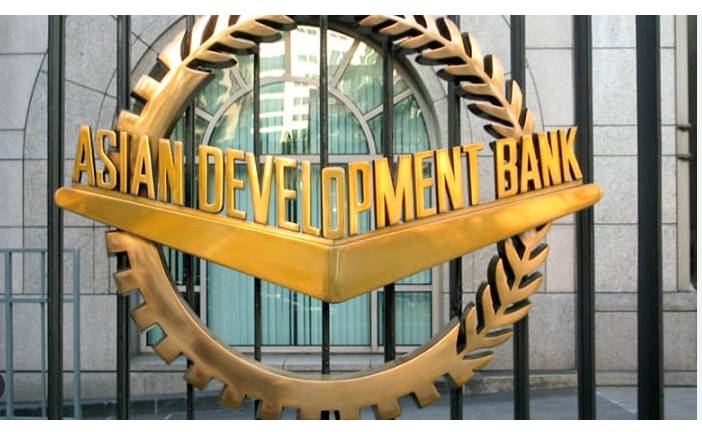ADB scales up support for Pakistan by approving $530 million loans
$330 million financing will enhance institutional capacity of Benazir Income Support Programme: $200m loan is for upgrading Pakistan’s power distribution system: Key objectives include reducing energy losses: LESCO, MEPCO, SEPCO to get benefit

Stay tuned with 24 News HD Android App

The Asian Development Bank (ADB) on Wednesday approved to major loans worth $530 million aimed at strengthening Pakistan’s social protection programmes and services, and upgrading country’s power distribution infrastructure and enhancing reliability of electricity supply, reported 24NewsHD TV channel.
The ADB approved $330 million in additional financing to strengthen Pakistan’s federally-administered social protection programmes and services. The result-based loan for the ongoing Integrated Social Protection Development Program (ISPDP) will help expand the grassroots-level social protection to alleviate poverty among poor women and their families.
According to an ADB press release issued in Manila on Wednesday, the programme will enhance the institutional capacity of the Benazir Income Support Programme (BISP), Pakistan’s flagship social protection agency, to transition to adaptive and climate-resilient social protection. This will include enhancing access to education pathways for children and youth from poor families and increasing access to health services and nutrition supplies for beneficiaries who are in disaster-prone areas.
“This programme strengthens Pakistan’s effort to improve human capital development and reduce intergenerational poverty, especially for women who are disproportionately affected during difficult economic situations,” said ADB Director General for Central and West Asia Yevgeniy Zhukov. “ADB’s additional financing will help boost the government’s ability to reach more of the poorest and most vulnerable in Pakistan.”
Approved in December 2021, the ISPDP includes a $600 million loan from ADB’s ordinary capital resources, a $3 million grant from the Asian Development Fund, and a $24.48 million co-financing grant from the Education Above All Foundation. The $627 million program, in implementation since 2022, has achieved significant results.
“The program is performing well. It has helped increase access to primary and secondary education for children and adolescents from poor families as well as improved access to health services and nutrition supplies for women and adolescent girls,” said ADB Country Director for Pakistan Emma Fan. “Steady progress has been also made to improve the financial management, procurement practices, internal controls, and information management system for BISP, which is responsible for implementing cash transfer programs.”
Pakistan was a founding member of ADB. Since 1966, ADB has committed over $52 billion in public and private sector loans, grants, and other forms of financing to promote inclusive economic growth in Pakistan and improve the country’s infrastructure, energy and food security, transport networks, and social services.
ADB is committed to achieving a prosperous, inclusive, resilient, and sustainable Asia and the Pacific, while sustaining its efforts to eradicate extreme poverty. Established in 1966, it is owned by 69 members—49 from the region.
Hours earlier, the ADB has approved a $200 million loan aimed at upgrading and modernizing Pakistan’s power distribution infrastructure and enhancing the reliability of electricity supply.
According to an ADB press release, the Power Distribution Strengthening Project will focus on upgrading distribution systems to meet the increasing electricity demand in the country. Key objectives include reducing significant energy losses during transmission and improving the resilience of infrastructure against climate change and disaster-related risks. Initially, the project will benefit three major distribution companies: Lahore Electric Supply Company (LESCO), Multan Electric Power Company (MEPCO), and Sukkur Electric Power Company (SEPCO), promoting more efficient and sustainable energy delivery in these areas.
“Reliable grid-connected electricity improves the quality of life,” said Yevgeniy Zhukov, ADB’s Director General for Central and West Asia. He emphasized that the project’s loss reduction and revenue protection measures would help mitigate financial losses in the power sector, easing economic pressures on the country.
The initiative will fund the installation of over 332,000 advanced metering infrastructures, along with data management and communication systems, and 15,800 online transformer performance monitoring systems across LESCO, MEPCO, and SEPCO.
Additionally, four grid stations in SEPCO will see voltage upgrades from 66 kilovolt (kV) to 132 kV to reduce transmission losses and address rising electricity demand. In LESCO, at least 25 grid stations will be constructed and modernized with essential equipment. High-loss 11 kV feeder lines will be replaced with aerial bundled conductor cables, and improvements will be made to feeder line configurations.
“These upgrades will reduce losses, enhance revenue collection, and provide real-time data on electricity consumption and grid performance,” noted ADB Principal Energy Specialist Seung Duck Kim. The project will also facilitate quicker fault identification and isolation during extreme weather, minimizing outage durations.
Furthermore, the initiative will explore reform actions and policy recommendations to improve the operational efficiency of the three distribution companies.
As a founding member of ADB, Pakistan has received over $52 billion in loans, grants, and financing since 1966 to support inclusive economic growth and enhance infrastructure, energy, food security, transport networks, and social services in the country.
Reporter Waqas Azeem
